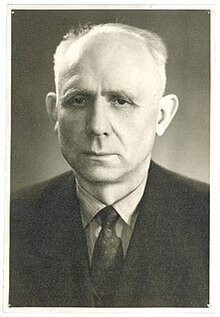.mw-parser-output .hidden-begin{box-sizing:border-box;width:100%;padding:5px;border:none;font-size:95%}.mw-parser-output .hidden-title{font-weight:bold;line-height:1.6;text-align:left}.mw-parser-output .hidden-content{text-align:left}You can help expand this article with text translated from the corresponding article in Estonian. (August 2020) Click [show] for important translation instructions.
Machine translation, like DeepL or Google Translate, is a useful starting point for translations, but translators must revise errors as necessary and confirm that the translation is accurate, rather than simply copy-pasting machine-translated text into the English Wikipedia.
Do not translate text that appears unreliable or low-quality. If possible, verify the text with references provided in the foreign-language article.
You must provide copyright attribution in the edit summary accompanying your translation by providing an interlanguage link to the source of your translation. A model attribution edit summary is Content in this edit is translated from the existing Estonian Wikipedia article at [[:et:Pent Nurmekund]]; see its history for attribution.
You should also add the template ((Translated|et|Pent Nurmekund)) to the talk page.
For more guidance, see Wikipedia:Translation.
This article needs additional citations for verification. Please help improve this article by adding citations to reliable sources. Unsourced material may be challenged and removed.Find sources: "Pent Nurmekund" – news · newspapers · books · scholar · JSTOR (March 2020) (Learn how and when to remove this template message)
Pent Nurmekund | |
|---|---|
 Nurmekund in May 1965 (aged 58)[1] | |
| Born | Arthur Roosmann 16 December 1906 Kilingi-Nõmme, Estonia |
| Died | 28 December 1996 (aged 90) Tartu, Estonia |
| Nationality | Estonian |
| Spouse | Salme Nigol |
| Academic work | |
| Discipline | Linguist |
| Institutions | University of Tartu |
Pent Nurmekund (16 December 1906 – 28 December 1996) was an Estonian linguist and polyglot. He could read over eighty languages.[2][3]